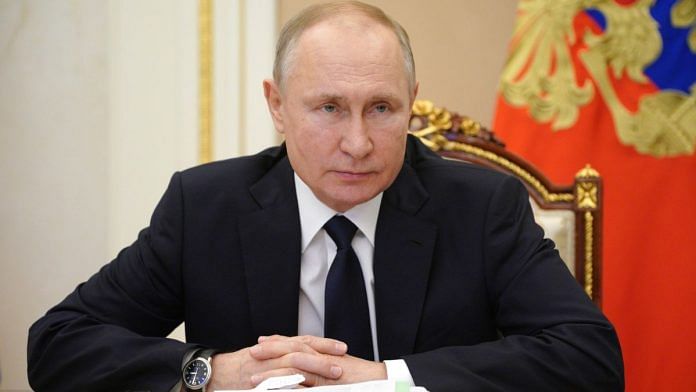Thank you dear subscribers, we are overwhelmed with your response.
Your Turn is a unique section from ThePrint featuring points of view from its subscribers. If you are a subscriber, have a point of view, please send it to us. If not, do subscribe here: https://theprint.in/subscribe/
Kenneth Waltz, one of the original founders of neoliberalism, in his initial contribution to the field of international relations through his influential 1959 book, ‘Man, the State, and War’, classified theories of the causes of war into three levels of analysis: international, state, and individual. According to the international level of analysis, aspects of the international system influence how countries operate by their power level. The state level analysis contends that the international system level only provides a partial account of international relations and that a more thorough explanation can be found by looking at the backgrounds of states including their governing structures, economics, geography, history and culture. Finally, according to the individual level, leaders’ personalities directly affect their foreign policy. The three levels complement each other, eventually influencing the state behaviour, as against viewed operating in silos.
Vis-a-vis Waltz’s levels of analysis, International and domestic level attributes of Russia’s war on Ukraine have generally caught the attention. The third level i.e. the crucial leadership level is generally overlooked. It is brought out that personality of the leader often has an overarching influence on state’s policies and more so when war provides the context. Putin, as rundown to 2024 Presidential elections, has been making efforts to garner support in the name of war and crises situation that Russia is amidst. However, the war conditions or otherwise, the domestic approval ratings of Putin have been high through decades.
According to Statista, a global data intelligence platform, in January 2024, over eighty percent of Russians approved of the activities of the President Putin. The popularity level was eight percentage points higher than in September 2022. After Russia invaded Ukraine at the end of February 2022, the approval rating increased, giving Putin a certain shot in the arm.
As per the Council on Foreign Relations (CFR), in the initial days after the mutiny of the mercenary Wagner forces in June 2023, Putin had been severely, weakened. His subsequent actions, however, demonstrated his continuing mastery of the political situation in Russia. CFR experts are of the opinion that during the past two decades, Putin has proven to be a skilful and ruthless political operator, exploiting the inherent strengths of his position in the Russian political system. As president, he sits at the centre of a vast web of patronage links that define the ruling elite, to include senior government officials, the military brass, oligarchs, heads of major corporations, leading academics and media representatives. Abruptly removing him risks collapsing the entire web. He has manipulated to strengthen his position over the last quarter of century, while at the helm.
In addition, the people of Russia too, see in Putin the only viable alternative; being left with no choice. After the adversities of the Yeltsin years, Russians were desperate for a leader who could restore order and stability, even at the cost of democracy. Putin has brought in a degree of order after the chaos, welcomed by the Russians. Even after the commencement of war with Ukraine, the Russian economy has remained surprisingly robust — paradoxically buoyed by western sanctions. The West has in a way facilitated for Putin to claim to be a defender of Russian interests, in several ways to include the anxieties related to expanding NATO footprints. And not to forget the edifice of ‘manufactured opinions’ that state media has been able to erect.
Popularity ratings of Putin declined temporarily, following the announcement of a partial mobilisation in the country in 2022 and the latest majority opinion in Russia is against the war with Ukraine, as assessed recently by the Atlantic Council. Though ambitious to think, but this may force Putin to adjust his public position on the invasion.
However, his continuation in power is not based on any hysteria concerning the ongoing war with Ukraine. Putin is on a comfortable pitch, as far as decision to end the war is concerned and with recent favourable outcomes for the Russian military on the battlefield, he may acquire a high position at the bargaining table, if at all the war ends.
Getting back to Waltz’s third level of analysis, the strong personality of Putin, owing to support of Russian population, has been one of the most instrumental attributes for the so called ‘special operations’ launched in February 2022. The circumstances, both international and domestic, have configured the support of Russians to Putin, thereby augmenting his stature. The strength of Putin rests on this very support, irrespective of the means employed to amass the same. Putin’s domestic approval is likely to be in his favour, ensuring his continuation in power in times to come, irrespective of the ongoing war.
These pieces are being published as they have been received – they have not been edited/fact-checked by ThePrint

